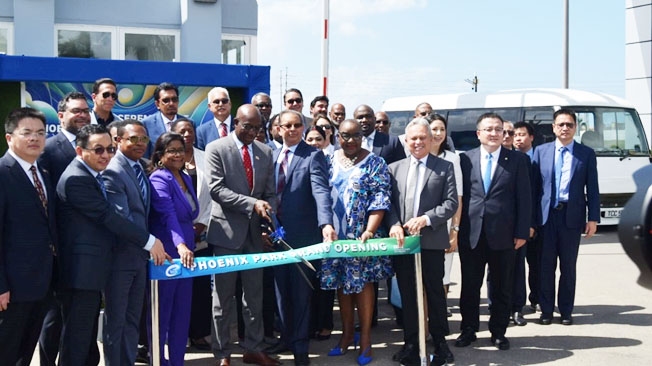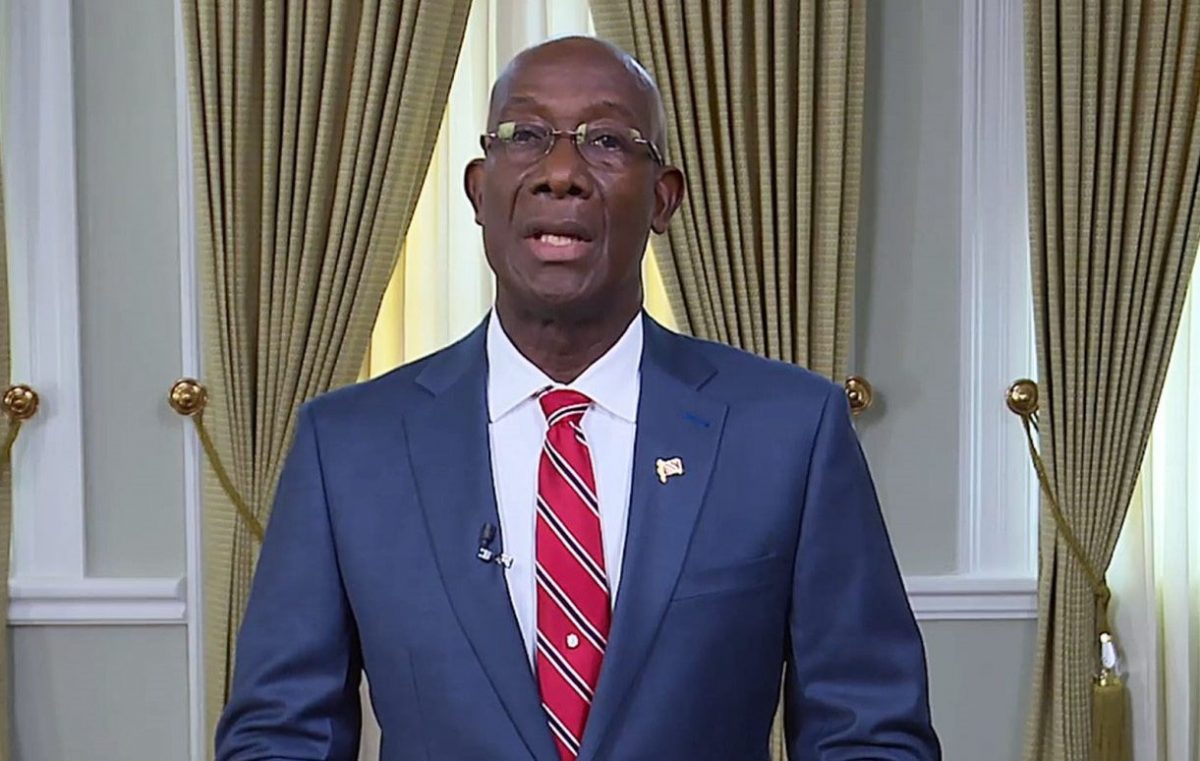China has, over several decades, been ceaseless in its quest to strengthen relations with the Caribbean. Its various diplomatic missions scattered across the region and its timely ‘pitching in’ with projects, seemingly designed to boost the economies of the respective countries, as much as to burnish its image in the region, reflects a mindfulness of the geopolitical importance of making its own presence felt in a region widely perceived as being part of the West’s backyard.
A key element of the country’s global diplomatic strategy is its proclivity for bearing gifts. Described as “a new economic generator”, the China-funded Phoenix Park Industrial Estate in Port-of-Spain has been hailed by Trinidad and Tobago’s Prime Minister, Dr. Keith Rowley, as representing a “critical economic infrastructure for people and business in Trinidad and Tobago,” a comment that will no doubt secure approval in Beijing, where one of that political administration’s most enduring ambitions is to have its trumpet blown globally, at least as loudly as that of the United States, if not, in some instances, louder.

Prime Minister Rowley, understandably, sees it differently; in his presentation at the ‘christening’ of the Phoenix Park project, he declared the project to be “an investment in critical economic infrastructure for people and businesses in Trinidad and Tobago… this milestone,” he added, “marks the inauguration of the most modern industrial park in Trinidad and Tobago and the Caribbean, and the creation of a new economic generator in our country.” For the Chinese it is, of course, yet another foreign policy excursion into the Caribbean where it has long launched a multi-faceted influence-peddling initiative consistent with its perception of its place in the global political and economic pecking order.
As reported in sections of the media in the twin–island Republic, Trinidad and Tobago sees the initiative as “a new economic generator,” one of six industrial estates in Central Trinidad that will serve to “provide companies with ease of access to available energy, raw materials, skilled personnel and modern port facilities.” Crucially for Beijing, bent as it is on the export of its image in countries where the West has long had a firm foothold, it is about continuing to justify its claim to being a bona fide superpower. The new Phoenix Park Industrial Estate joins four other such facilities located at Point Lisas, Biljah, Chase Village, and Frederick Settlement in the country.
What the facility does, in practical terms, is to consolidate the country’s position as the foremost industrial power in the Caribbean Community. These industrial parks occupy almost 480 acres of land, and according to Dr. Rowley, the key objective of the partnership with Beijing is to “leverage the networks and opportunities available to them to ensure that their businesses are able to thrive and prosper globally as we add much-needed diversity to the economy of Trinidad and Tobago.” From China’s perspective, the project highly favours the country’s name being linked to significant development-related undertakings in developing countries.
In his address at the opening of the new facility, Dr. Rowley was mindful to afford the Chinese visitors the sentiments that customarily go down well in Beijing, describing the Phoenix Park as “a symbol of the strong and blossoming relationship between the governments of Trinidad and Tobago and the People’s Republic of China, a relationship that in 2024 marks 50 years since the two countries established diplomatic ties,” and according to Dr. Rowley, “it is very fitting that this project be commissioned today.”
The Caribbean, of course, is no stranger to China. Countries in the region including Guyana, Jamaica, Trinidad and Tobago and Cuba are known to have long-standing diplomatic ties with China, some of which have metamorphosed into various forms of development assistance extended to those countries by Beijing.






